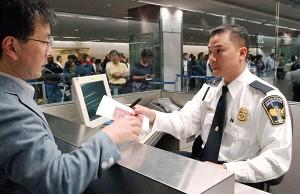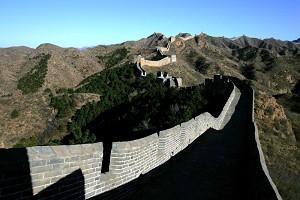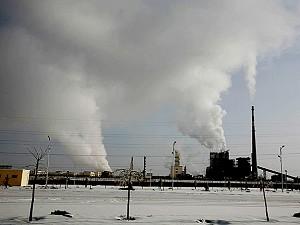TAIPEI-The Hong Kong Wen Wei Pao newspaper quoted Chinese authorities as saying that China Travel Agency (CNTA) and the U.S. Department of Commerce will sign an agreement at the end of this year relaxing visa restrictions on Chinese traveling to the United States. According to the report, in the near future Chinese will not be restricted to business visas when traveling to the United States. During last year’s visit to China, Carlos Gutierrez, Secretary of the U.S. Department of Commerce said that increasing the numbers of Chinese tourists traveling to the United States will help in reducing the trade deficit between the two countries. The tourism industry will play an important role in America’s economy and China’s bilateral trade relations. Both China and the United States have opened discussions to reach an agreement on tourism.
According to an inside source, negotiations between Chinese and U.S. authorities began last year. During the second meeting of the U.S.- China Strategic Economic Dialogue in May, China and the United States signed an agreement. U.S. and Chinese representatives discussed the issue of relaxing visa restrictions on Chinese tourists groups entering the United States.
The same inside source also said that both sides are still in discussions regarding the relaxing of visa requirements. If an agreement can be reached, it is estimated there would be several million additional Chinese visiting the United States each year.
“It isn’t easy for Chinese tourist groups to get American visas,” said Bao Huailu, President of the U.S. based Vientiane travel agency. “If ten people apply for visas there will be six that are denied. There were only 230,000 Chinese who obtained American visas in 2005, compared to the 2.5 million that obtained visas to European countries. A demanding conditions threshold of American visas and other reasons have made it very difficult for Chinese tour companies to legally organize travel groups to the United States.
According to Beijing’s Sina.net, 72 percent of all those surveyed considered the U.S. and Canada being the hardest countries to obtain visas when traveling with a Chinese passport.
In recent years, European countries have attracted large numbers of Chinese tourists. Under pressure from several industry lobbying groups, the U.S. government has relaxed its visa requirements to promote growth in the tourism industry.
According to official U.S. data, every year there are 300,000 Chinese tourists that visit America. During the travel season the related expenses for Chinese visitors total US $1.5 billion. However the two countries have not yet signed the “Tourism Destination Agreement.” Chinese citizens travel to the United States mainly through travel agency organized trips, as it is very hard for individuals to obtain travel visas. There have never had been large numbers of Chinese visitors to the United States.
Although the U.S. has yet to open its doors to individual traveling Chinese, those in the tourist industry have already caught the scent of a huge economic opportunity.
Large U.S. travel agencies have signed agreements with China Youth Travel Agency and China Travel Agency to provide assistance in organizing Chinese tours of the United States.
The City of Los Angeles established a tourism office in Beijing last year. Its scope of service includes the three big cities of Beijing, Shanghai, and Guangzhou Province.
Antonio Villaraigos, the Mayor of Los Angeles, estimated that once the United States relaxes restrictions on visas issued to Chinese, there would be a 50 to 100 percent increase in Chinese tourists visiting Los Angeles.
“Along with the opening of a Los Angeles tourism office in Beijing, there will be many more Chinese people traveling to Los Angeles,” said Mr. Bao. “As local tourism industries compete for customers Chinese tourists will receive better service. More money will also flow into the U.S. economy. It is a win-win situation.”




